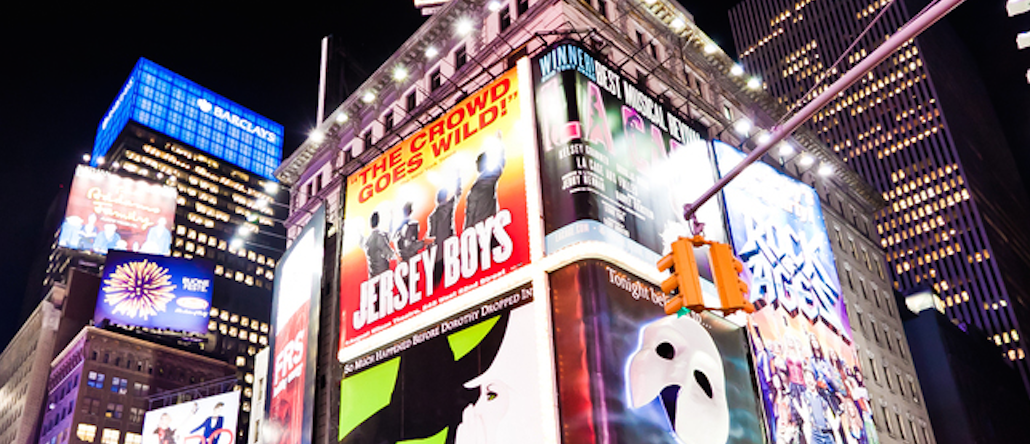Last chance to save on Digiday Publishing Summit passes is February 9

Advertisers claim they want to engage rather than disrupt consumers, but their need to have their message noticed, combined with publishers’ desperation for revenue, has resulted in an increase in intrusive ads cluttering even the most premium of websites.
One of the worst examples might be one that’s running on TheNextWeb, the tech news site. The site’s new ad format, Canvas, pushes the article out of the way and starts playing automatically. It keeps playing until you mouse over or click back on the article, a corner of which remains visible in the margin of the screen.
This is how a Canvas ad for Shutterstock appeared on the site today:
In a May 7 blog post, Boris Veldhuijzen van Zanten, TheNextWeb’s co-founder and CEO, said the format is an improvement over banners and is meant to give advertisers a way to display big, well-designed images or videos without imposing “ugly interstitials” on users like other sites do. He said it designed the ad to make it as easy as possible for users to get rid of it, (although its quick fix — hitting the “c” key to make the ad go away — isn’t exactly intuitive).
The success of Facebook’s autoplay video ads may embolden publishers to run more autoplay ads on their own sites. But they have to ask themselves if the harm to the user experience is really worth it. Recent research has shown that intrusive ads can actually cost publishers in user abandonment.
Not all readers were thrilled with the experience.
The FT is now measuring how long visitors look at its ads https://t.co/lqeB2OgPRO pic.twitter.com/O8m3cPDdHH
— The Next Web (@TheNextWeb) May 19, 2015
@TheNextWeb you could also look into your case and maybe remove the annoying desktop ads… — Adam Karacsony (@ananaszjoe) May 19, 2015
TheNextWeb itself admitted one commenter called it “the most infuriating hide-the-content ad ploy I’ve ever seen,” while maintaining that the fact people were tweeting about the ad is validation. Still, van Zanten said the site has taken steps to limit the user’s exposure, such as only showing them to viewers on direct visits, and having them appear only in the background for the next four pageviews. It has also tested speedier animation and other variables to make viewing and hiding the ad more intuitive.
“All in all, we hope to show you a lot less ads than other sites, but if we do, it will be a beautiful full-screen design,” van Zanten said.
More in Media

Brands invest in creators for reach as celebs fill the Big Game spots
The Super Bowl is no longer just about day-of posts or prime-time commercials, but the expanding creator ecosystem surrounding it.

WTF is the IAB’s AI Accountability for Publishers Act (and what happens next)?
The IAB introduced a draft bill to make AI companies pay for scraping publishers’ content. Here’s how it’ll differ from copyright law, and what comes next.

Media Briefing: A solid Q4 gives publishers breathing room as they build revenue beyond search
Q4 gave publishers a win — but as ad dollars return, AI-driven discovery shifts mean growth in 2026 will hinge on relevance, not reach.





